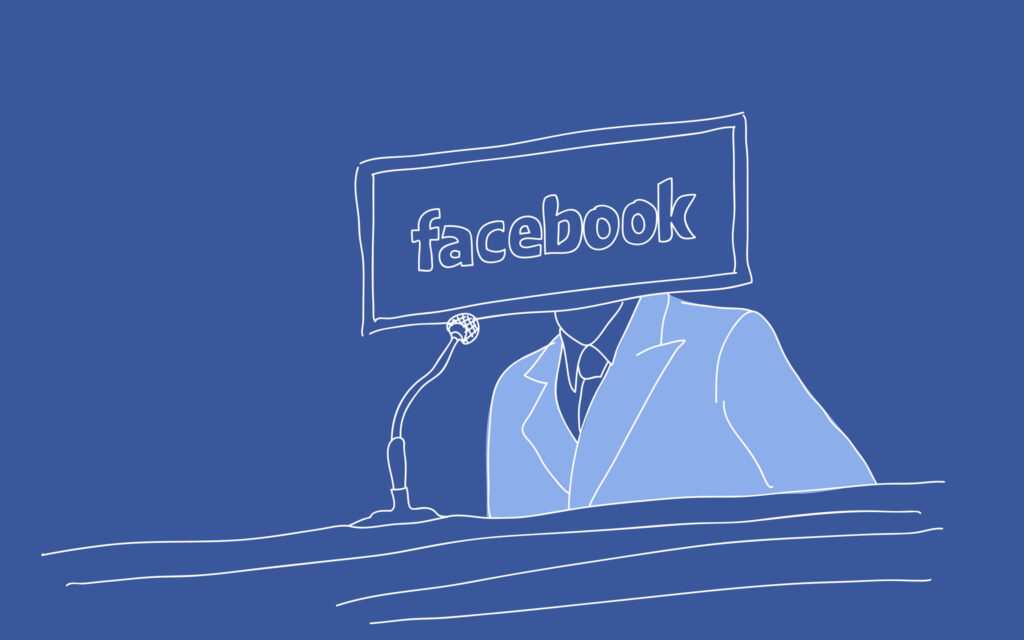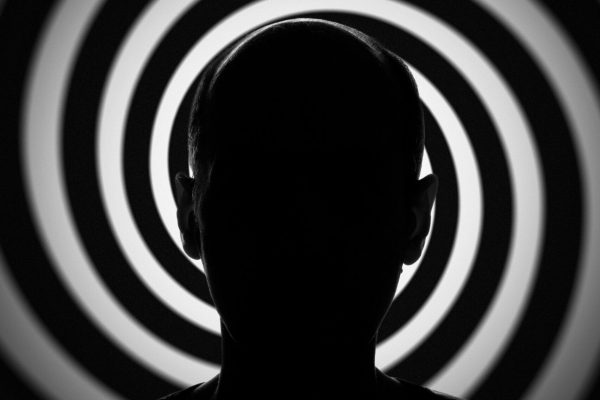From its inception democratic life in the United States has promised to protect the search for truth by allowing ideas to compete with one another on fair and free terms. Citizens have long placed their faith in this “marketplace of ideas.” This past year, however, has stoked doubts that such a marketplace can cultivate honest engagement in a polarized age.
Is there something inherent about Facebook that gives disproportionate power to bad actors in the marketplace of ideas?
After all, Facebook, a frequently visited marketplace of ideas for its two billion users, has failed to stop the spread of fake news. More recently the social media giant has been mired in controversy following revelations that Cambridge Analytica used the personal information of millions of Facebook users to construct psychological profiles of voters leading up to the Brexit and 2016 U.S. presidential votes.
These events raise a critical question: if Facebook is simply an online marketplace of ideas, why has it consistently failed to weed out misinformation? It is worth asking whether there is something inherent about Facebook that gives disproportionate power to bad actors in the marketplace of ideas.
•••
For more than ten years now, Facebook has built its image and its following on an idealistic promise to empower everyone’s voice, giving its users unfettered access to share, engage, and dispute one another. Zuckerberg sees this social connection as a tool for political progress and democracy. As he has noted, “In a lot of ways Facebook is more like a government than a traditional company. We have this large community of people, and more than other technology companies we’re really setting policies.”
When Facebook’s policies proved to fragment, polarize, and threaten liberal democracy more than a year ago, Zuckerberg issued a nearly 6,000-word treatise that began as a mea culpa, but ultimately set out Facebook’s mission to create a political community global in scope.
“History,” Zuckerberg argued, “is the story of how we’ve learned to come together in ever greater numbers . . . Progress now requires humanity coming together not just as cities or nations . . . Facebook stands for bringing us closer together and building a global community.”
Consider the contrast with important strands of the U.S. free speech tradition. One important strand of that tradition—including James Madison, Louis Brandeis, and Alexander Meiklejohn—has argued that the free and open marketplace of ideas enables democratic self-government in a pluralistic society. It is the Facebook founder’s goal to bring us closer together. Self-government and community are not the same.
Facebook’s algorithm failed to take into account that humans are quick to believe information that confirms their worldview even if that information is false.
Crucially, Facebook’s marketplace of ideas is built on the premise that sharing will help humans bond with one another, not in the shared quest for the truth, but in search of connection. But by plugging into our strong desire for human connection, Facebook has also plugged into our strong desire to factionalize.
The Founding Fathers understood the essential point that democracy stands for more than simply bringing people together. As John Jay warned, “The wise and the good never form the Majority of any large society, and it seldom happens that . . . they can always prevent being overborne themselves by the strong and almost never-ceasing union of the wicked and the weak.”
Similarly, Madison believed in the strong human inclination toward faction and oppressing minorities. This understanding of human nature informed his disdain for pure, majoritarian democracy, and the constitutional system was built around this skepticism. Progress and democratic governance, the Founding Fathers understood, can’t merely be about an open platform for “a large community of people” to act on impulse, as Facebook does. Rather it must be designed to safeguard against these natural human passions.
Indeed Madison’s view of human nature and how it ought to inform democratic life has proved most enduring. In what is perhaps his most famous passage, Madison defines government as “the greatest of all reflections of human nature,” noting: “If men were angels, no government would be necessary. In framing a government which is to be administered by men over men, the great difficulty lies in this: you must first enable the government to control the governed; and in the next place oblige it to control itself.”
But, as others have noted, Facebook holds an unrealistic view of human nature, one that is at odd's with Madison's conception. Zuckerberg begrudges the tendency of humans to disagree with one another—not the poor design of his algorithm—as the primary impediment to realizing his global community. In his treatise, Zuckerberg remarked: “Giving everyone a voice has historically been a very positive force for public discourse because it increases the diversity of ideas shared. But the past year has also shown it may fragment our shared sense of reality.”
Given today’s vantage point, it is not hard to see how the social media platform that sold itself as a tool for giving everyone a voice has resulted in self-segregation instead. As many have noted, Facebook’s algorithm failed to take into account that humans like outrage, enjoy shutting down their ideological opponents, and are quick to believe information that confirms their worldview even if that information is false. In fact, we spread inaccurate information faster than the truth.
While Facebook users may be empowered to say and share what they want, they do not share a civic space where citizens are accountable to one another in the pursuit and protection of self-government.
The U.S. constitutional design, by contrast, allows for faction and ultimately works because it requires a social contract that necessitates a minimum level of civic cohesion. While Facebook users may be empowered to say and share what they want, they do not share a civic space where citizens are accountable to one another in the pursuit and protection of self-government.
As Madison advised, any system of governance that seeks to be legitimately democratic must inevitably encompass a multitude of opinions, some complementary but many conflicting: “As long as the reason of man continues fallible, and he is at liberty to exercise it, different opinions will be formed. . . . The latent causes of faction are thus sown in the nature of man.”
But Madison did not believe that the human impulse toward factionalism could be overcome by removing its causes or controlling for its effects. “Destroying the liberty which is essential to [factions’] existence,” Madison argued, was “worse than the disease,” while any effort to “[give] to every citizen the same opinions, the same passions, and the same interests” was “impracticable.”
Instead, Madison provided for the free speech liberties that enable such divisions in the first place. He knew that the liberties that inspire faction are the same liberties that allow citizens to communicate with one another in a marketplace of ideas that ultimately supports democratic self-rule. Building a democratic society around an honest view of human nature thus required not only accommodating divergent interests but also ensuring that the mere existence of divergent interests would not threaten democratic life itself.
Conversely, Facebook’s obsession with social connection, rather than democratic self-government, has empowered actors who are interested in dismantling democracy. Whistleblower Christopher Wylie described the psychological profiling of voters using Facebook data as an effort to “[whisper] into the ear of each and every voter” and a way of coaxing voters through “informational dominance.” The campaign, Wylie argued, was responsible for the populist upheavals of 2016 that have shaken Western liberal democracy.
•••
Facebook’s dominance has only exacerbated the problems that lie at the heart of its design. Without any real competitors, Facebook operates as a semi-monopolistic entity. Despite all of Zuckerberg’s talk about an open and more connected world, the fact remains that his vision revolves around the continued dominance of Facebook as the sole platform.
Facebook’s obsession with social connection, rather than democratic self-government, has empowered actors who are interested in dismantling democracy.
And the sheer power of the platform is staggering. As New York Times journalist Kevin Roose reflected following Zuckerberg’s first day of hearings:
“These senators are part of a legislative body that makes the laws for a population of three hundred and some million. Mark Zuckerberg, by himself, controls a sort of supranational entity that’s 2.2 billion people. . . . He can’t launch nuclear weapons or start a war or collect taxes but he can shape the behaviors and the mental states and the information diets of many, many more people around the world.”
The consequences of that type of authoritarian power have been stark for U.S. democracy. It seems likely, after all, that more competition between rival platforms would have introduced a greater number of algorithms for Russian operatives to navigate, and probably would have mitigated the impact of the fake news that successfully targeted voters during the 2016 U.S. election.
Facebook has sold a myth of ever greater connection yielding ever greater cooperation—a fallacy that our founders warned against. Yet there is reason for optimism. Our constitutional design has yielded a system capable of living up to the high ideal of democratic self-rule. It has generally bred cohesion and proved capable of overcoming periods of divisiveness. And, unlike Facebook, U.S. democracy has thus far had history on its side.







